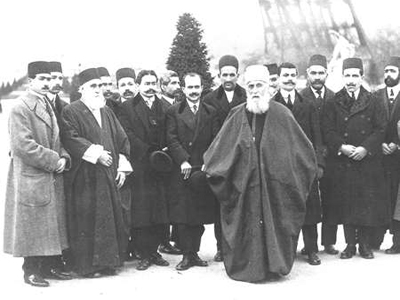
‘Abdu’l-Bahá by the Eiffel Tower
History 6 - The Bahá’í Faith Spreads around the World
Before the start of the 20th century almost all of the Bahá’í historical events took place in the Middle East, against a backdrop of constant persecution. From the decade of 1890-1900 onwards, the scene expanded to the United States and the countries of Europe as the Faith drew believers from these continents, particularly after the extensive travels of ‘Abdu’l-Bahá to the west, from 1911-1913. By the 1950s, teaching work was sufficiently organised, under the inspiration of Shoghi Effendi, for there to be a surge of ‘pioneers’, who spread the Faith to over 200 new territories in Africa, the Pacific and Asia. The growth of the Faith is now coordinated through global ‘plans’ under the guidance of the Universal House of Justice.
Ready for more?
not all...
quizzers. Try to win a coveted spot on our Hall of Fame Page.







